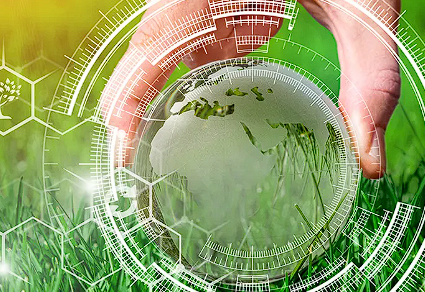India BioEconomy Report
The India BioEconomy Report was released recently by the Department of Biotechnology. It revealed that, in 2024, bioeconomy was valued at over $165 billion, contributing more than 4.2% to the national GDP. The Department of Biotechnology anticipates growth to $300 billion by 2030 and $1 trillion by 2047.
What is Bioeconomy?
Bioeconomy refers to the economic activities that utilise biological resources. This includes plants, animals, and microorganisms. It also encompasses the replication of natural processes for producing goods and services. The focus is on sustainability and renewable resources.
Current State of the Bioeconomy
India’s bioeconomy has nearly doubled in five years. It grew from approximately $86 billion in 2020 to $165 billion in 2024. The number of bioeconomy companies surged by 90%, reaching over 10,000. By 2030, this number is expected to double, potentially creating 35 million jobs.
Sector Contributions
The industrial sector is the largest contributor, generating about $78 billion. This includes biofuels and bioplastics. The pharmaceutical sector follows, contributing 35% of the total value, with vaccines being factor. Research and IT are the fastest-growing segments, focusing on biotech software and clinical trials.
Regional Disparities
Five states dominate the bioeconomy – Maharashtra, Karnataka, Telangana, Gujarat, and Andhra Pradesh. Together, they account for over two-thirds of the sector’s value. In contrast, the eastern and northeastern regions contribute less than 6%. Addressing these regional imbalances is vital for sustained growth.
Challenges Ahead
Maintaining high growth rates will be challenging. Innovation and scaling-up bio-based solutions are essential. The removal of policy and infrastructure barriers is necessary. Furthermore, regulatory uncertainties, particularly regarding genetically modified crops, need to be addressed.
BioE3 Policy Introduction
In 2024, the Government of India launched the BioE3 policy. This initiative aims to position India as a global hub for bio-manufacturing. It focuses on establishing networks of universities, research institutions, and industries. Key areas include bio-based chemicals, precision biotherapeutics, and climate-resilient agriculture.
Future Prospects
India has a strong foundation in biotechnology. The government is assessing proposals for new projects under the BioE3 policy. The potential for bioeconomy growth is immense, provided that challenges are effectively managed.
Month: Current Affairs - March, 2025
Category: Economy & Banking Current Affairs








